The influence of Latino heritage and culture has long been prevalent in the city of Los Angeles. This includes a history of activism relating to causes at the local, state, national, and international levels. The variety of causes Latino Americans have contributed their time, energy, and sometimes their lives to is reflected in the Los Angeles Public Library Photo Collection. These visual sources, found in our many collections such as Shades of L.A. and the Los Angeles Herald Examiner, along with donations from individual photographers tell the stories of large and small scale struggles for equitable treatment throughout the decades. Here is a small sampling of images illustrating this history of Latino American activism in Los Angeles.
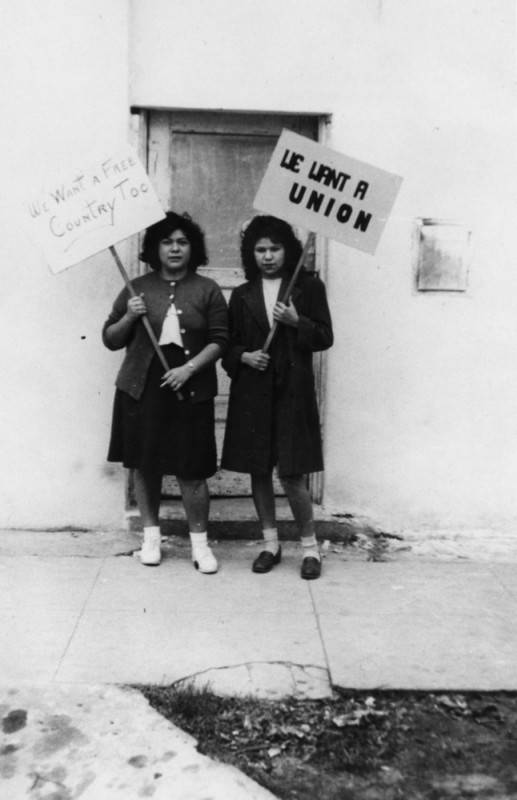
Rosie, left, age 19, and Ramona, age 17, protest the lack of a union during a strike outside the Barenveld Shirt Factory in San Fernando in 1943. (Shades of L.A. Collection)
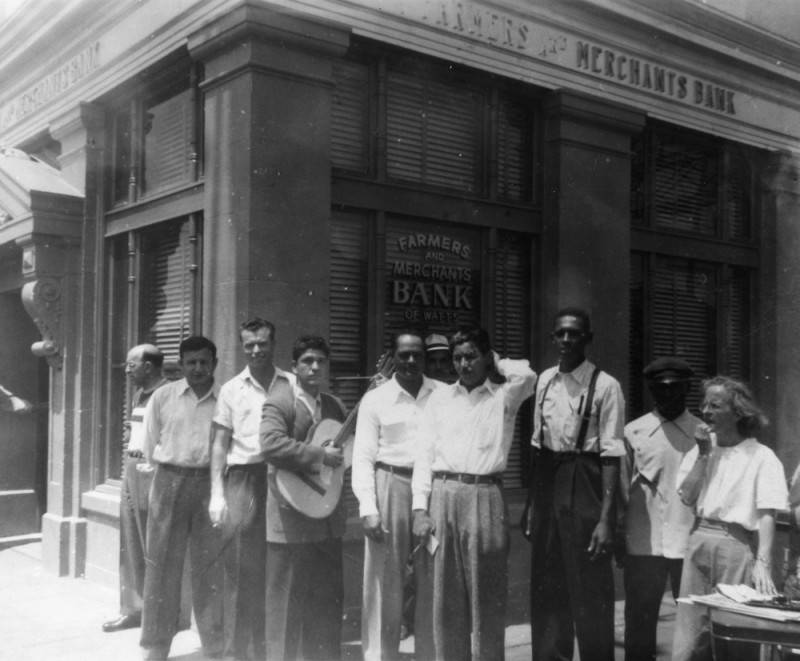
 Protestors gather at the Farmers and Merchants Bank of Watts in 1948 which was picketed by Southeast Interracial Council and Independent Party for not hiring African American or Mexican American tellers. (Shades of L.A. Collection)
Protestors gather at the Farmers and Merchants Bank of Watts in 1948 which was picketed by Southeast Interracial Council and Independent Party for not hiring African American or Mexican American tellers. (Shades of L.A. Collection)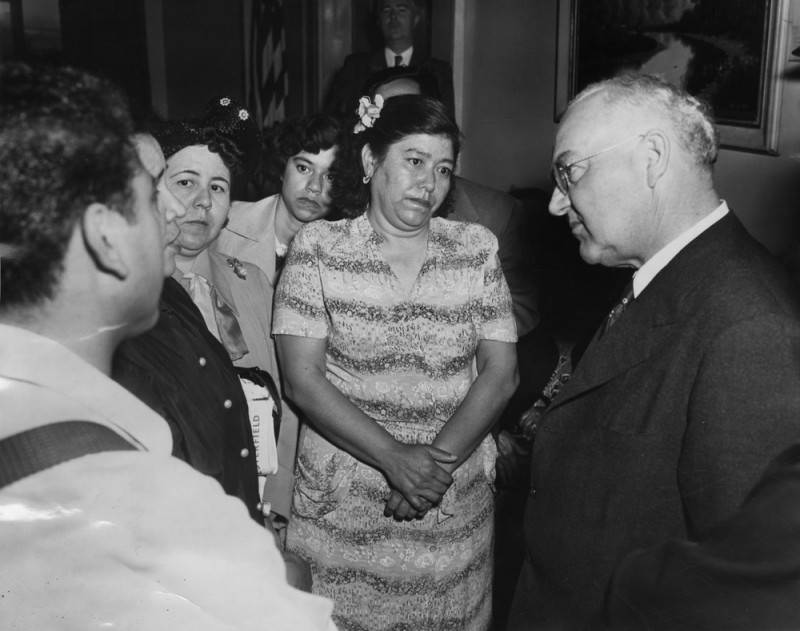
Mayor Fletcher Bowron briefly meets with 40 irate homeowners in May 1951 who staged a sitdown outside his office to protest losing their Chavez Ravine homes to a Federally funded housing project. (Los Angeles Herald Examiner Collection)
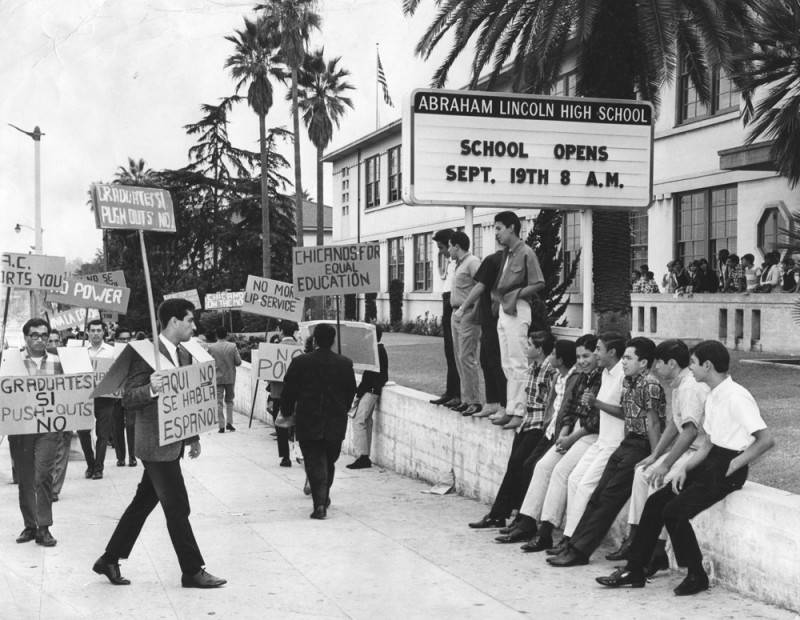
Students, parents, and members of the Neighborhood Adult Participation Project stage a demonstration in front of Lincoln High School at the fall 1966 semester opening in a protest against the lack of counseling services and educational opportunities for Mexican-American students. (Los Angeles Herald Examiner Collection)
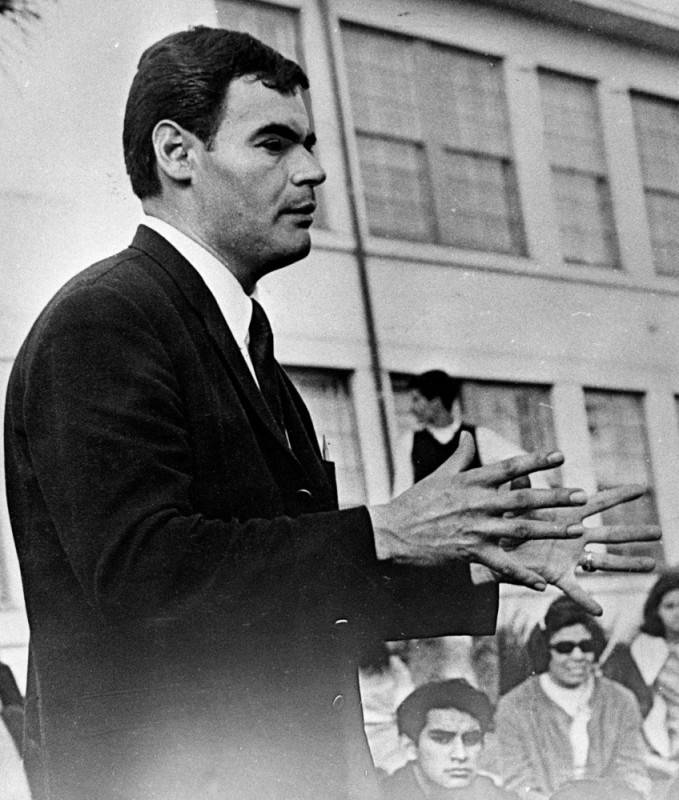
Sal Castro, activist and teacher at Lincoln High School leads students in a 1968 boycott against the lack of counseling services and educational opportunities for Mexican-American students. (Jim Ober/Los Angeles Herald Examiner Collection)
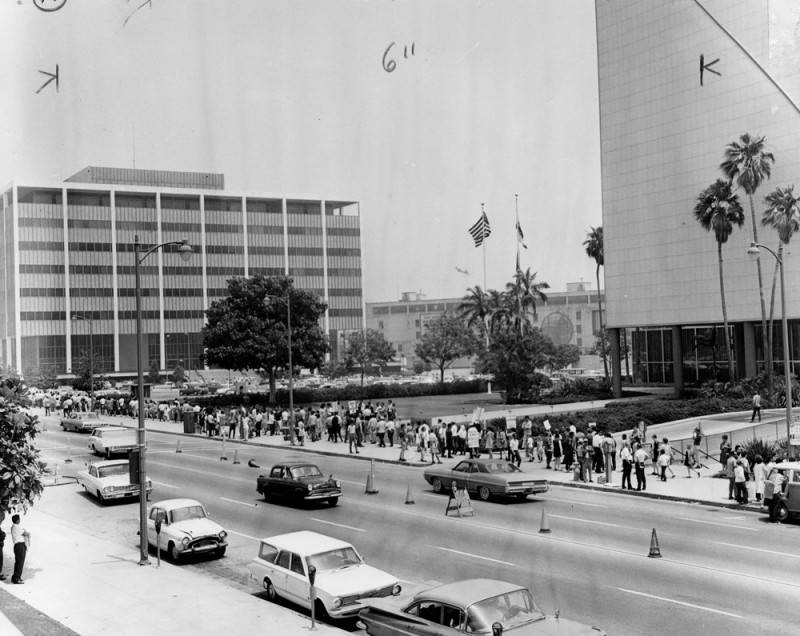
Protesters march around the block of the downtown headquarters of the Los Angeles Police Department on June 2, 1968. Several thousand members of the Mexican-American community turned out to protest the indictment of 13 men, including Sal Castro, on conspiracy charges stemming from a student walkout of four predominantly Mexican-American high schools the previous March. (Los Angeles Herald Examiner Collection)
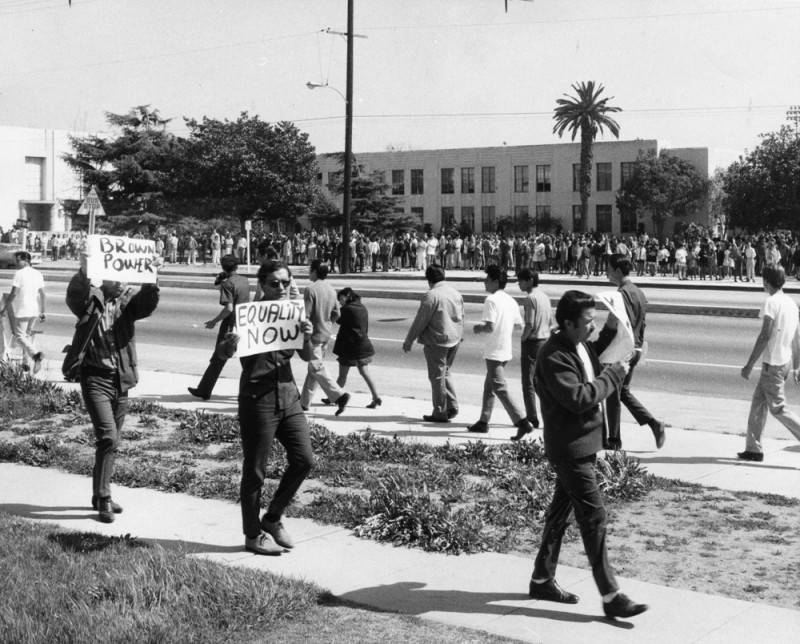
During lunch period in 1969, Venice High School students stand in front of school in silent protest of conditions. In foreground, parents and members of interested groups parade with signs across street from school. (Los Angeles Herald Examiner Collection)
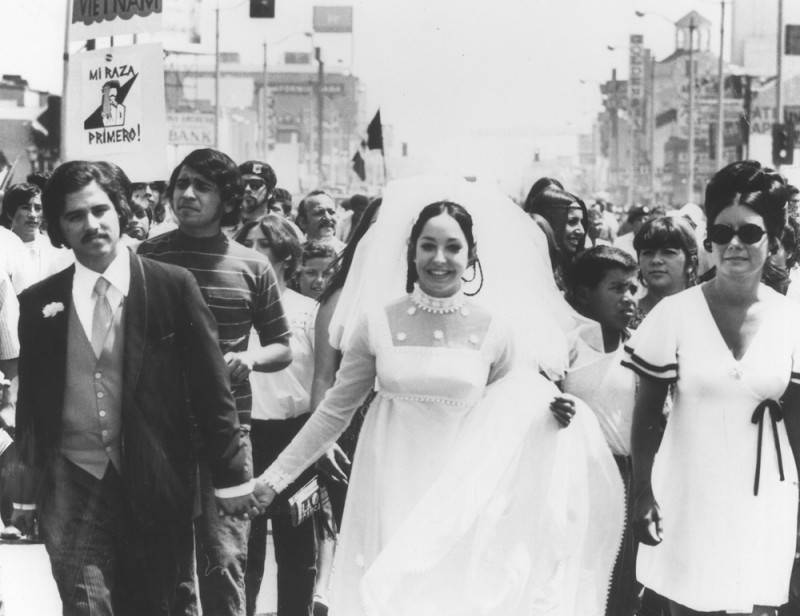
A newly wed couple participate in a Chicano Moratorium march on August 29, 1970 where 30,000 Mexican-Americans converged in East Los Angeles to protest the Vietnam War. The march ended with a rally that was broken up by the Los Angeles Sheriffs' Department with tear gas, resulting in the death of Ruben Salazar, a journalist who was covering the event. (Sal Castro/Security Pacific National Bank Collection)
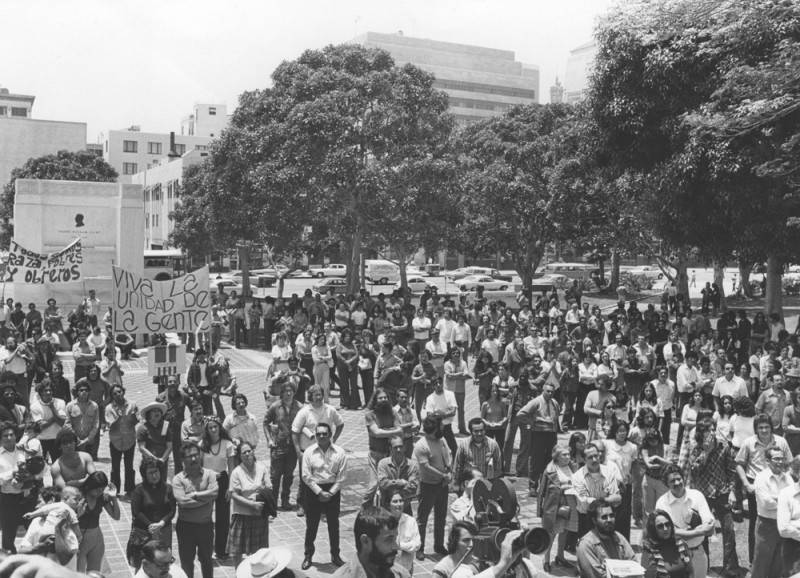
Mexican-American demonstrators at Los Angeles City Hall protest deportation raids in 1973. (Los Angeles Herald Examiner)

Mexican-American demonstrators converge at the Picwood Theatre on Pico Boulevard to protest the 1979 premiere of "Boulevard Nights," a film they say depicted Latinos unfavorably. (Dean Musgrove/Los Angeles Herald Examiner Collection)
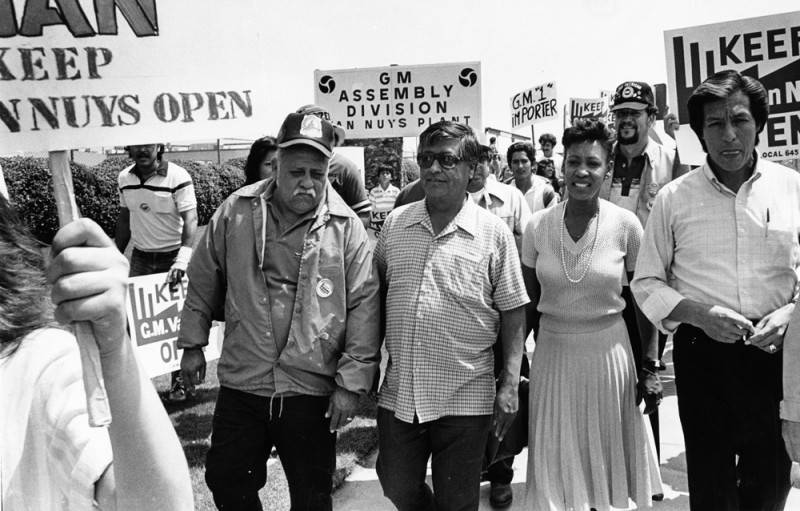
Cesar Chavez, longtime labor advocate and President of the UFW (United Farm Workers of America) prepares to address a large rally of UAW (United Automobile Workers) to protest the closing of the General Motors plant in Van Nuys in 1983. Also in attendance was Maxine Waters.

Demonstrators protest the validity of Mexican elections near country's consulate on Olvera Street in 1988. (Mike Sergieff/Los Angeles Herald Examiner Collection)
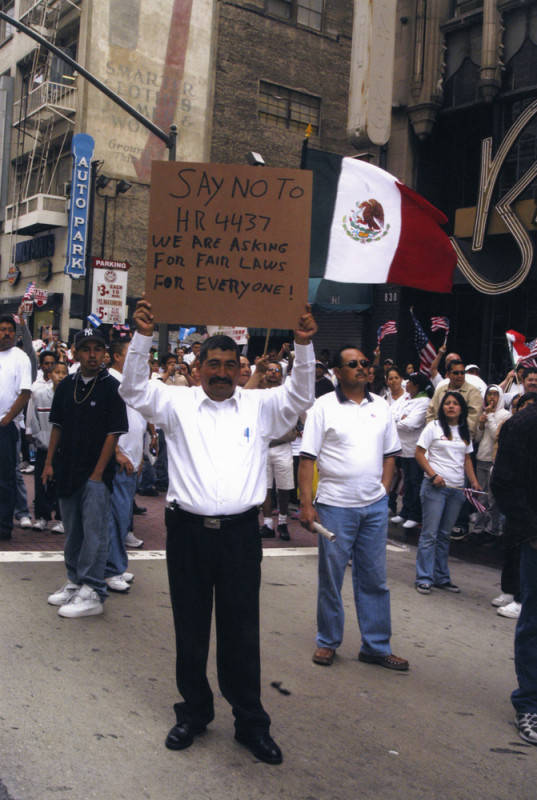
A protestor participates in a Downtown rally during the Great American Boycott on May 1, 2006. Also known as "A Day Without an Immigrant," the one-day boycott of U.S. schools and businesses was organized by immigrants, most of Latin American origin, of both legal and illegal status - protesting the anti-immigration movement and demanding general amnesty and legalization programs for non-citizens. (Stone Ishimaru Collection)
